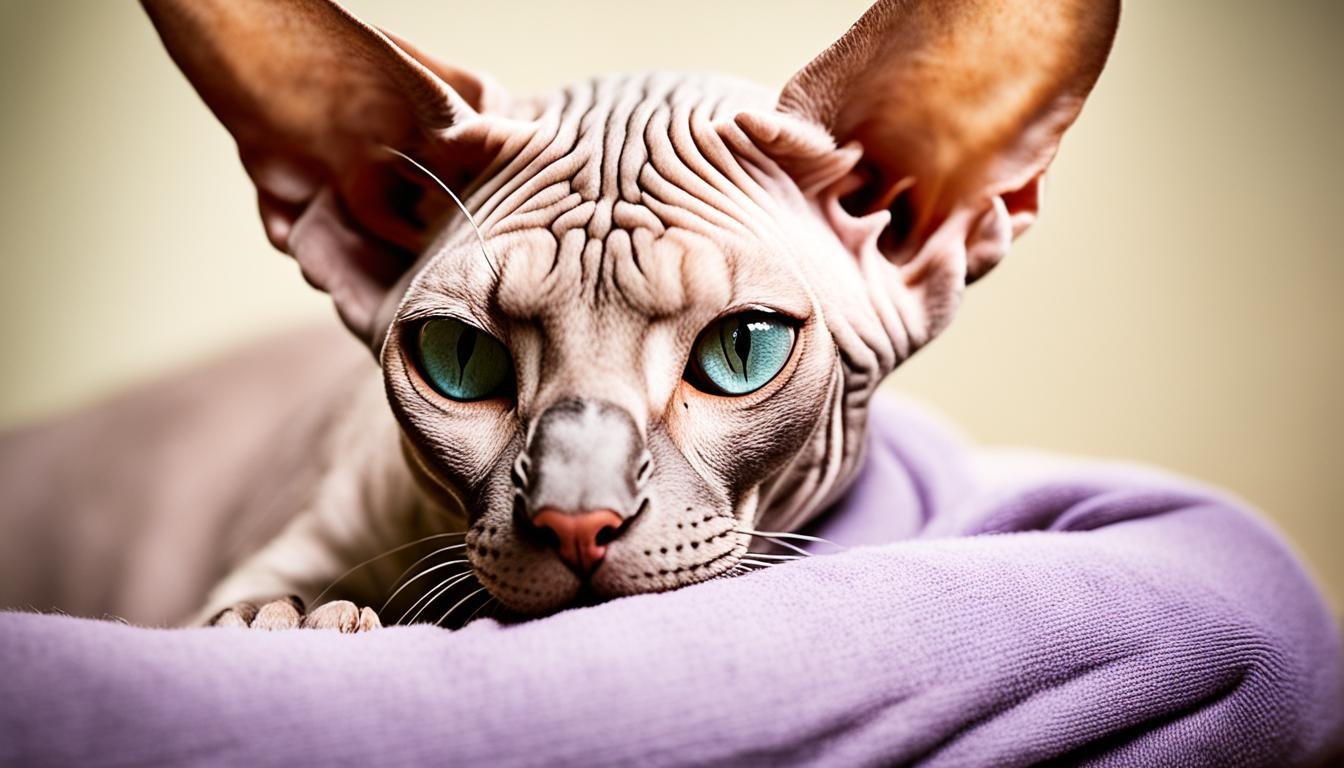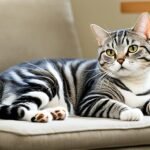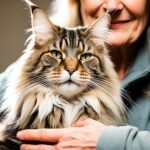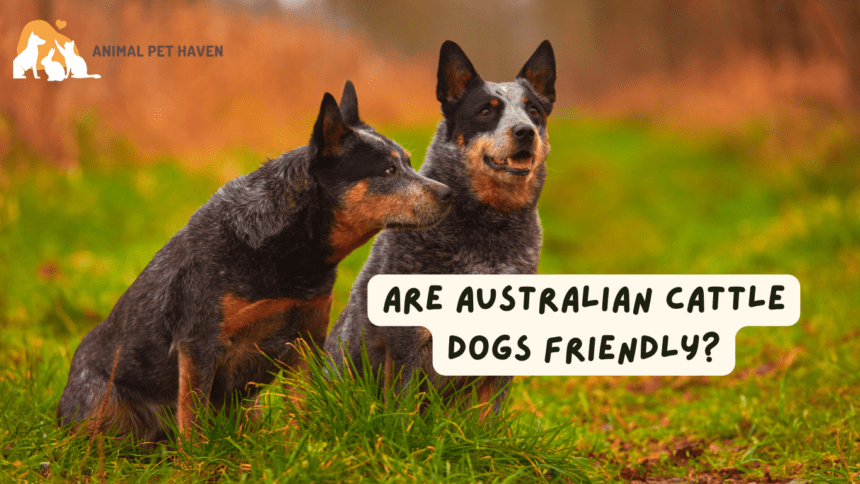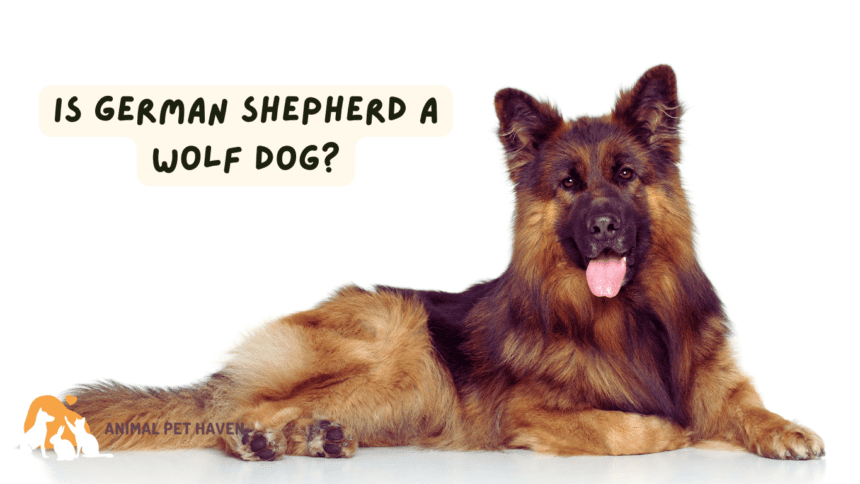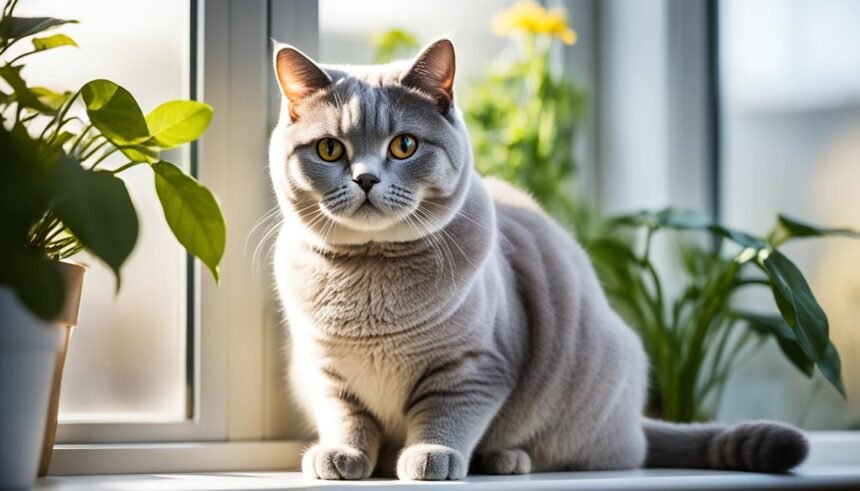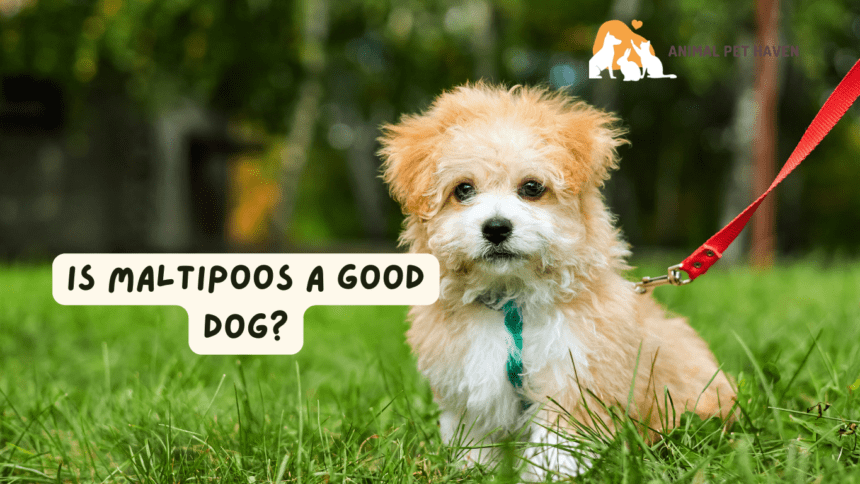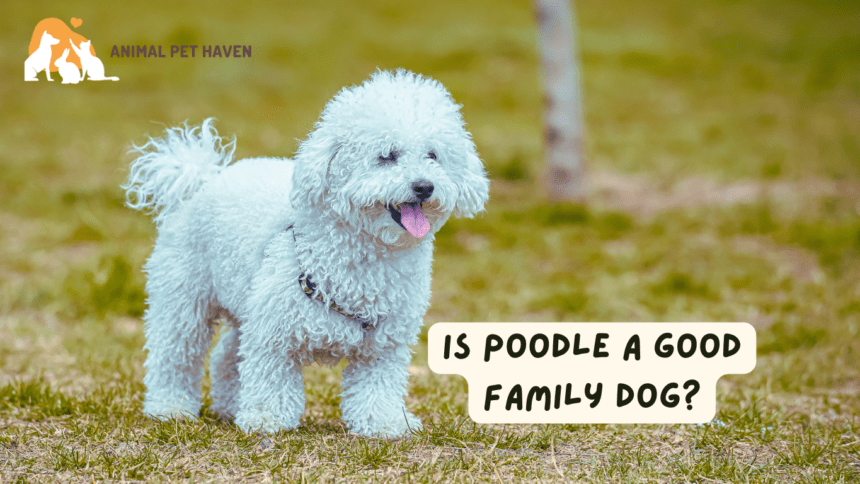The Sphynx cat, with its distinctive hairless appearance and affectionate nature, has been intriguing feline enthusiasts around the globe. As a breed of cat that stands out in the crowd, the Sphynx cat breed captures attention not just for its lack of coat, but also for its warm and sociable demeanor. When considering what makes a good pet, one might ask if a hairless cat breed like the Sphynx can truly offer the companionship and ease of care that pet owners seek.
Known for their love of human interaction, Sphynx cats may indeed be one of the most affectionate cat breeds, often forming strong bonds with their owners. But affection alone doesn’t fully define the relationship between a pet and its caretaker. This breed requires a committed owner who understands the dedication required to maintain the health and happiness of these unique pets.
Whether you’re a seasoned cat lover or considering a Sphynx as your first pet, realizing what makes each feline tick is crucial. In embracing a Sphynx, one accepts not just a pet, but a devoted companion, with needs and attributes that differ somewhat from the more common furry friends we’re used to. The goal of our exploration is to ascertain whether the Sphynx cat breed aligns with your lifestyle, making it a truly good pet for you and your family.
An Introduction to the Sphynx Cat Breed
Bearing a distinctive appearance that captures the eye, the Sphynx breed is famed for its lack of a fur coat, an unusual trait among the pantheon of feline breeds. Known often as the Canadian hairless, this intriguing cat breed has a rich heritage and a strong following within the cat-lovers’ community. This palpable intrigue around the breed has led to its global recognition, with organizations like the International Cat Association bestowing it with official status among purebred feline breeds.
The origin story of the Sphynx cat is as unique as its appearance. The breed’s inception can be traced back to a naturally occurring genetic mutation which led to the birth of hairless kittens. Breeding programs commenced to preserve and refine this gene, leading to the purebred Sphynx cats we are familiar with today. Combining intelligence with a playful demeanor, the Sphynx cat has clawed its way into the hearts of cat aficionados around the world.
Their cat breed profile is not only about their hairless quality but also encompasses their overall health, disposition, and care requirements. Here’s a snapshot of what makes the Sphynx stand out:
| Characteristic | Description |
|---|---|
| Coat | Hairless, wrinkled skin that feels warm and soft to the touch |
| Temperament | Affectionate, friendly, and energetic; enjoys human company |
| Health | Generally healthy with predispositions to certain skin and dental conditions, regular care is required |
| Maintenance | Requires regular bathing and skin care due to lack of fur |
| Recognition | Recognized by major cat fancier associations, including the International Cat Association |
Through thoughtful breeding and handling, the Sphynx breed has flawlessly transitioned from a surprise genetic rarity to a beloved and widely-recognized cat breed. While the striking appearance of the purebred Sphynx cats may initially draw curiosity, it is their warm, inquisitive personalities that foster a lasting appeal.
Understanding the Sphynx Cat’s Unique Appearance
The Canadian Sphynx captivates with its extraordinary look, a direct result of a genetic mutation responsible for its hairlessness. This peculiar feature sets it aside from the fur-covered feline breeds, presenting a curiosity-invoking canvas of wrinkles and smooth skin. But the Sphynx is not alone in the hairless breed category; others like the Devon Rex, Elf Cat, and the Russian Hairless offer a glance into a peculiar subculture within the feline world.
Genetic Mutation and Hairlessness
The Sphynx’s lack of fur is due to a recessive gene, which means that both parents must contribute this gene for their offspring to display the trait. Not only does this genetic mutation account for its bald aesthetic, but it also contributes to the Sphynx’s warm and leathery touch, often likened to a heated suede. While this hairlessness might seem merely cosmetic, it plays a significant role in the breed’s care and lifestyle.
The Wrinkled Skin of a Sphynx
More than just hairless, the Canadian Sphynx is renowned for its wrinkled appearance, especially around the shoulders, between the ears, and around the muzzle. It’s a feature that provides this breed with an intriguing, wise look, despite their playful and kittenish demeanor.
Comparing Sphynx Cats to Other Hairless Breeds
The Sphynx is often compared to the Devon Rex due to their similar appearances, but while the Sphynx is entirely hairless, the Devon Rex sports a coat of loose, downy hair. Here’s a comparison table highlighting the distinctive features between the Sphynx and its hairless counterparts:
| Breed | Distinctive Feature | Origin | Coat |
|---|---|---|---|
| Canadian Sphynx | Rippled skin, pronounced cheekbones | Canada | None |
| Devon Rex | Curled, soft hair; large ears | United Kingdom | Short, fine undercoat |
| Elf Cat | Curl-backed ears | United States | Varies from hairless to a thin coat |
| Russian Hairless (Donskoy) | Elastic skin, muscular build | Russia | None to velour |
Despite these differences, all these breeds share similar care guidelines due to their exposed skin, which necessitates regular bathing and protection from extreme temperatures. This allure – a depiction of the unconventional in feline form – has heralded the Sphynx and its relatives into a special echelon of pet companionship.
The Appeal of the Sphynx Cat
Sphynx cats are more than just pets; they’re a statement of uniqueness in the feline world. With their distinctive appearance and charming characteristics, they are undeniably an affectionate cat breed that resonates deeply with cat lovers who seek an unconventional companion. These hairless kittens offer a dog-like loyalty, impressive for a cat, and exhibit social tendencies that verge on the human-cats tend to form deep bonds with their owners, reflecting their driving desire for interaction and affection.
Sphynx cats are often compared to dogs, not just because of their crave for human contact, but also for their playful and sometimes goofy antics, leading to an enthralling pet ownership experience. This unique cat breed is prized by those who cherish the lively engagement it offers. Below is a more detailed look into what makes the Sphynx cat breed so appealing:
- Highly sociable creatures that express their affection boldly and frequently.
- Known for the warmth of their skin, which is a delightful sensation when they cuddle into your lap.
- Their curiosity and intelligence make them agile partners in play.
- While other cats may be more reserved, Sphynx cats are extroverted and involved in family life.
- They are often compared to a canine companion in terms of their loyalty and eagerness to follow their humans around.
In summary, it’s not just the hairless allure that draws enthusiasts to this breed, but the prolific amount of personality packed into these engaging feline entities. Sphynx cats are a testament to the fact that affectionate companions come in all forms, and they continue to capture the hearts of those lucky enough to call themselves ‘owned by a Sphynx’.
Caring for Your Hairless Companion
Adopting a Sphynx cat immerses you in the unique world of hairless feline companions that require an approach to care that’s as distinctive as they are. Notably, potential health conditions associated with their hairlessness demand attention, and owning a Sphynx truly means committing to a routine that ensures their wellbeing.
Regular Baths and Skin Care for Sphynx Cats
The lack of a fur coat means that Sphynx cats need regular grooming to maintain skin integrity and health. Oil naturally accumulates on their skin and, without regular baths, can lead to skin problems. A strict bath regimen, ideally weekly, is recommended to keep their skin free from oil buildup and potential irritations. Moreover, using the right skin care products is crucial, as their sensitive skin requires gentle, non-drying cleansers.
Special Considerations for a Hairless Cat’s Health
Due to the lack of fur, Sphynxes are prone to certain health conditions that are less common in furred breeds. Owners should be vigilant for signs of skin infections or issues that can arise from improper care. Additionally, maintaining a comfortable temperature at home is important, as they can easily get too cold or overheat without the insulation provided by fur.
Managing Sun Exposure and Potential Sunburn
Another critical aspect of a Sphynx’s care involves protecting their delicate skin from excessive sun exposure. Just as humans can suffer from sunburn, so can your hairless Sphynx, particularly if they enjoy basking in the sunlight. Employing sun-safe strategies can include setting up shaded areas and using cat-safe sunscreen when minimal sun exposure is unavoidable.
| Care Aspect | Description | Frequency |
|---|---|---|
| Bathing | Use a gentle, cat-friendly cleanser to prevent skin irritation. | Weekly |
| Temperature Regulation | Keep your home warm to accommodate their lack of fur. | Daily monitoring |
| Sun Protection | Limit direct sun exposure and use cat-safe sunscreen if necessary. | As needed |
| Health Monitoring | Regularly check for skin issues and maintain vet check-ups. | Continual |
By understanding and implementing the essential care practices above, you can ensure that your Sphynx cat leads a happy and healthy life. Regular baths, special care routines, and preventive measures against sunburn are pillars of Sphynx cat ownership. It’s a commitment that’s as rewarding as it is necessary.
Are Sphynx Cats Hypoallergenic?
When delving into the realm of cat adoption, prospective pet owners often ask if hypoallergenic cat breeds are right for them, especially if they suffer from allergies. The common belief is that hairless felines such as the Sphynx are naturally hypoallergenic due to their lack of hair. This article section aims to untangle the truth behind this assumption and provide clear insights for those considering a low-allergen feline companion.
Firstly, it is essential to clarify that ‘hypoallergenic’ does not mean allergen-free; rather, it indicates that something causes fewer allergic reactions. In the context of cats, the source of allergens is not exclusively the fur, but also dander, saliva, and urine. Sphynx cats produce these allergens like any other cat, which contradicts the assumption that a hairless feline is automatically hypoallergenic. With that said, the breed’s unique characteristics may play a role in allergic sensitivity as outlined in the table below.
| Factor | Impact on Allergen |
|---|---|
| Production of Fel d 1 Protein | Sphynx cats produce similar levels of Fel d 1, a common allergenic protein, as other breeds despite their lack of fur. |
| Grooming Habits | Without hair to trap allergens, they may be less dispersed into the environment during grooming. |
| Regular Bathing | Owners tend to bathe hairless cats more frequently, which could reduce the presence of surface allergens. |
| Genetic Factors | Individual Sphynx cats may possess different levels of allergenic proteins, similar to other breeds. |
In conclusion, a hairless cat like the Sphynx may not offer the hypoallergenic solution that allergy sufferers hope for. As we have seen, several factors contribute to the presence of allergens. When choosing a cat breed for hypoallergenic qualities, it is critical to consider personal sensitivity to allergens and consult with an allergist. This assessment is vital to ensure the well-being of both the owner and the pet in question.
The Temperament of a Sphynx Cat
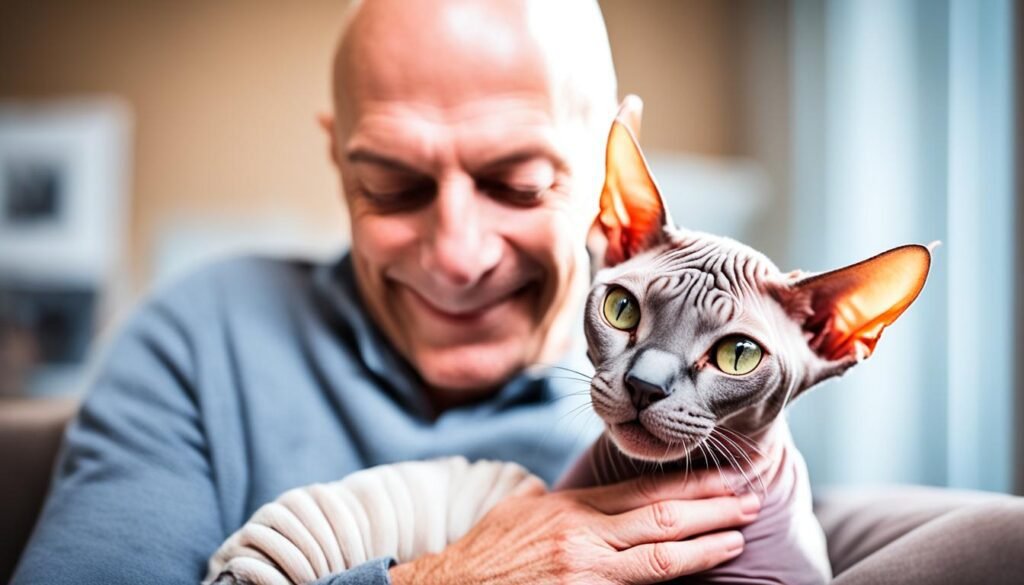
The very essence of a Sphynx cat’s temperament can be epitomized in a single word: affectionate. Sphynx cats are not just pets; they are devoted members of the family, always seeking the warmth of human companionship and a loving touch. It is not unusual for these charming felines to follow their owners from room to room, demonstrating their deep need for interaction and their dog-like loyalty.
Affectionate and Dog-Like Behaviors of Sphynx Cats
Sphynx cats love to express their affection openly. Whether it’s a soft purr or a gentle nuzzle, these cats make their fondness for their human counterparts very clear. This ingrained need for close contact drives them to often behave in a manner reminiscent of dogs, seeking attention and affection relentlessly.
Activity Levels and Playfulness in Sphynx Kittens
Playfulness is another cornerstone of the Sphynx cat’s character. Their activity level is remarkably high and Sphynx kittens, in particular, display a sheer delight in play that can entertain for hours. Recognized for their playful antics, Sphynx cats maintain a kitten-like zest for life well into adulthood, making every day with them a spirited adventure.
| Personality Trait | Description | Comparable to Dogs? |
|---|---|---|
| Affectionate | Demands love and gives it freely; thrives on physical contact | Yes |
| Loyal | Forms strong bonds and follows owners around | Yes |
| Playful | Highly energetic and enjoys interactive play | Varies by dog breed |
| Social | Enjoys being around people and other pets | Yes |
- Sphynx cats love to be the center of attention, whether playing fetch or curling up on a warm lap.
- Despite their lack of fur, they are warm in nature and yearn for cuddles and strokes.
- Their dog-like attributes extend to learning tricks and commands, showcasing their eagerness to please and engage.
- The sustained high activity level of Sphynx cats necessitates ample playtime and stimulation to keep them both mentally and physically content.
In summary, these cats make for an extraordinary pet experience. The Sphynx is indiscriminately affectionate, with a socially outgoing nature. These joyful bundles of energy not only crave love but return it tenfold, enriching the lives of those they touch with their undeniable charm and vivaciousness.
Sphynx Cat: Socialization and Household Integration
Introducing a Sphynx cat to a new home is a critical process that, when done correctly, can ensure the indoor cat becomes a beloved part of the family. Unlike the independent domestic shorthair, Sphynx cats tend to be highly social creatures that seek constant companionship and interaction. This inherent need for affection means that socialization is vital for their emotional well-being. Proper household integration can also prevent behavior issues and foster a harmonious environment for all inhabitants of the home.
When merging a Sphynx with your household, especially if other pets are present, a gradual introduction is key. The table below outlines helpful strategies to integrate your Sphynx cat seamlessly into your living space.
| Integration Step | Description | Tips |
|---|---|---|
| Initial Seclusion | Provide a separate area for your Sphynx to adjust without overwhelming it with the new space. | Equip with comforts like bedding, food, and litter. |
| Gradual Introduction | Slowly introduce household members and other pets under supervised conditions. | Use treats to create positive associations. |
| Supervised Interaction | Allow controlled periods of interaction until the cat seems comfortable. | Watch for signs of stress or aggression. |
| Full Integration | Once the Sphynx cat displays confidence, it can freely roam and interact. | Ensure escape routes are available should the cat feel overwhelmed. |
Remember, patience plays a pivotal role in the success of your Sphynx’s adaptation. Each cat is unique—some may require additional time and socialization efforts for full household integration. Creating a loving and patient atmosphere will help foster a deep bond between your Sphynx and its new family.
Diet and Nutrition: What to Feed Your Sphynx Cat
Understanding the optimal nutrition for your Sphynx cat is crucial, as their unique physiology dictates a higher metabolic rate than most other breeds. When considering what to feed your Sphynx, it’s essential to focus on high-quality cat food that provides a balanced diet rich in proteins and fats to sustain their energy levels.
Sphynx cats are known for their hearty appetites, and their diet should be tailored to meet not only their nutritional needs but also to cater to their particular tastes. Here are some tips on how to ensure your Sphynx receives the best possible nutrition:
- Choose a high-protein cat food brand, preferably with real meat as the first ingredient.
- Include both dry food for dental health and wet food for hydration.
- Consider adding omega fatty acids supplements to support their skin health.
- Ensure that taurine, an essential amino acid for cats, is a component of their diet.
- Offer small, frequent meals throughout the day to align with their high energy consumption.
Below is a table comparing popular commercial cat foods suitable for a Sphynx cat’s diet:
| Brand | Type | Main Protein Source | Omega Fatty Acids | Taurine Content |
|---|---|---|---|---|
| Blue Buffalo Wilderness | Dry | Chicken | Yes | 0.15% |
| Royal Canin Sphynx | Dry | Duck | Yes | 0.2% |
| Wellness CORE Natural Grain Free | Wet | Turkey & Chicken | Yes | 0.1% |
| Purina Pro Plan Focus | Wet | Salmon | Yes | 0.05% |
To ensure your Sphynx cat maintains a healthy weight and optimal health, periodic consultations with a veterinarian for dietary advice are highly recommended. Remember, providing an appropriate diet specific to your Sphynx cat’s needs is a key component in supporting a long and active life.
Health Issues and Lifespan of Sphynx Cats
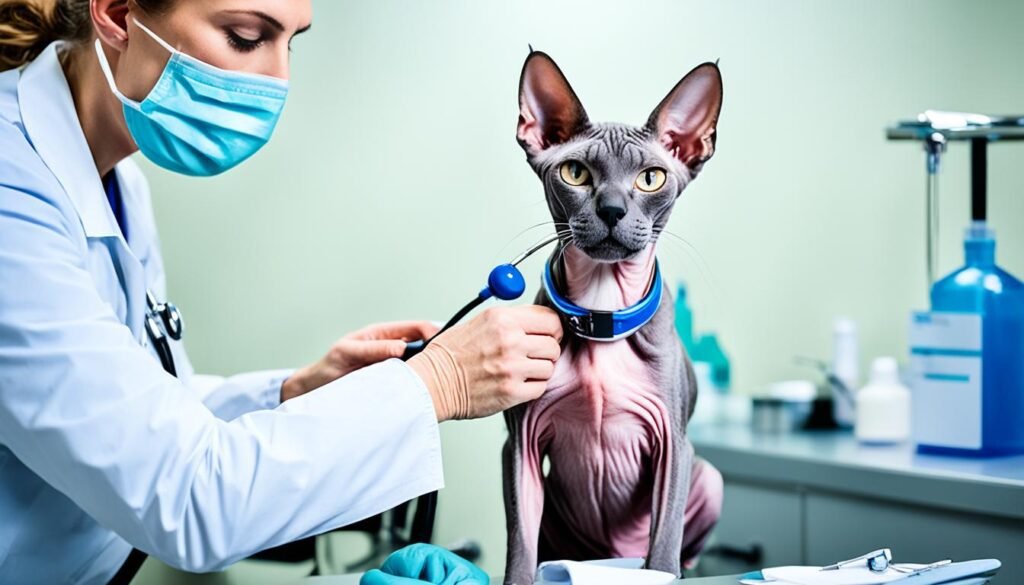
When welcoming a Sphynx cat into your home, understanding the potential health issues and the typical lifespan of these hairless companions is crucial. Recognizing common health conditions and implementing preventative health measures can lead to a longer and happier life for your feline friend.
Common Health Conditions in Hairless Cat Breeds
Sphynx cats, like all breeds, may experience specific health issues over their lifetime, some of which are influenced by their lack of hair. Awareness is key, as early detection can make a significant difference in outcomes.
- Hypertrophic cardiomyopathy (HCM), a form of heart disease in cats, is a concern, especially for the Sphynx breed.
- Skin-related issues such as fungal and bacterial infections due to their exposed skin.
- Hairless breeds can also suffer from hereditary dental problems and gum disease.
- Metabolic disorders like obesity can occur in Sphynx cats without proper diet and exercise.
Preventative Health Measures for Sphynx Cats
Investing in your Sphynx cat’s health through preventative care ensures a more robust life span. These proactive approaches are designed to tackle common health conditions before they become severe.
| Preventative Measure | Description | Expected Benefit |
|---|---|---|
| Regular Veterinary Check-ups | Annual visits for overall health assessments and bi-annual visits for senior cats or those with known issues. | Early detection and treatment of conditions such as HCM or dental disease. |
| Proper Nutrition | High-quality cat food that meets the energetic needs and dietary requirements of your Sphynx. | Maintains ideal body weight, supports metabolic health, and fortifies the immune system. |
| Skin Care Regimen | Frequent but gentle bathing and safe skin moisturizing practices. | Prevention of skin infections and fostering healthy skin condition. |
| Sun Protection | Limited exposure to direct sunlight and the use of safe sunscreens formulated for pets. | Reduces risk of sunburn and skin cancer associated with ultraviolet light. |
| Dental Hygiene | Regular teeth cleaning by the owner or professional dental cleanings as advised by a vet. | Keeps periodontal disease at bay and promotes overall health. |
By understanding the potential for health issues and placing an emphasis on preventative health, owning a Sphynx cat can be an enriching experience. With vigilant care, these captivating creatures can thrive and bring joy to their families for years to come.
How to Choose a Sphynx Cat from a Breeder
When you’ve decided to bring a lovable hairless kitten into your home, it’s crucial to ensure you’re working with a Sphynx cat breeder that takes pride in offering healthy, well-socialized pets. Not only does a reputable breeder increase the odds of adopting a physically and temperamentally sound cat, but they also adhere to specific breed standards that help protect and enhance the Sphynx breed’s unique characteristics.
Identifying a Reputable Breeder for Hairless Kittens
There are several markers of a reputable breeder when searching for hairless kittens. They will offer transparency into their breeding practices and have a clear passion for the breed’s well-being. They should willingly provide health screenings and records, as well as facilitate a visit to see the kittens in their environment. Observing how the kittens interact with their littermates and humans, as well as ensuring that living conditions are clean and loving, can speak volumes about the breeder’s integrity.
Understanding Breed Standards and Pedigree
Kitten buyers should be familiar with the breed standards set by major feline organizations to discern the quality of the Sphynx they intend to adopt. A breeder invested in the breed’s future will strive to match these standards closely, signifying their commitment to the breed’s integrity. Furthermore, a legitimate pedigree is a testament to the purity of the cat’s lineage, providing assurance that your kitten is a true Sphynx.
Below is a helpful comparison of essential considerations when choosing a Sphynx Cat breeder:
| Aspect | Reputable Breeder | Other Sources |
|---|---|---|
| Health Screenings | Provides comprehensive health screening results for kittens and their parents | May not offer detailed health information or history |
| Living Conditions | Kittens are raised in a clean, loving home environment | Kittens may be raised in less than ideal conditions |
| Knowledge of Breed | Extensive knowledge about Sphynx breed standards and care | Limited knowledge which may affect the quality of care |
| Socialization | Socializes kittens early with humans and other cats | Kittens may have limited socialization experiences |
| Pedigree Documentation | Offers official pedigree papers certifying lineage | Often cannot provide legitimate pedigree documentation |
| After-Adoption Support | Available for guidance and questions post-adoption | Support after adoption may be minimal or nonexistent |
Secure the wellbeing of your future feline companion by thoroughly researching and selecting a sphynx cat breeder who not only meets but exceeds these standards. Responsible breeding practices ensure that your Sphynx kitten will be a happy and healthy addition to your family for years to come.
Conclusion
Embracing Sphynx cat ownership is to welcome a creature with no parallel. Delving into the essence of what makes a Sphynx cat a pet unlike any other, we discern that their unique traits extend far beyond physical appearance. This affectionate breed has catapulted into the hearts of many with its warmth and sociability. Eliciting a strong emotional bond, these cats often display a temperament that mirrors the lovable nature of canine companions, coupled with the quintessential independence of felines.
Essential to Sphynx cat care is the understanding of their specific needs—from regular skincare to their predisposition for certain health issues. While hypoallergenic considerations may not necessarily favor the Sphynx, through proactive and informed care, the challenges posed by their hairless nature can be managed. The responsibilities associated with their upkeep serve to further the unique bond between pet and owner, reinforcing the Sphynx’s standing as a treasured member of any household.
In answering the central question of our exploration, the Sphynx cat indeed stands out as a lovable and engaging pet for those prepared to attend to its unique requirements. Sphynx ownership encapsulates a rewarding journey, brimming with affectionate interactions, a touch of the unconventional, and an abundance of love. For the right owner, a Sphynx cat is not just a good pet; it’s a distinctive companion that redefines the joy of pet companionship.

